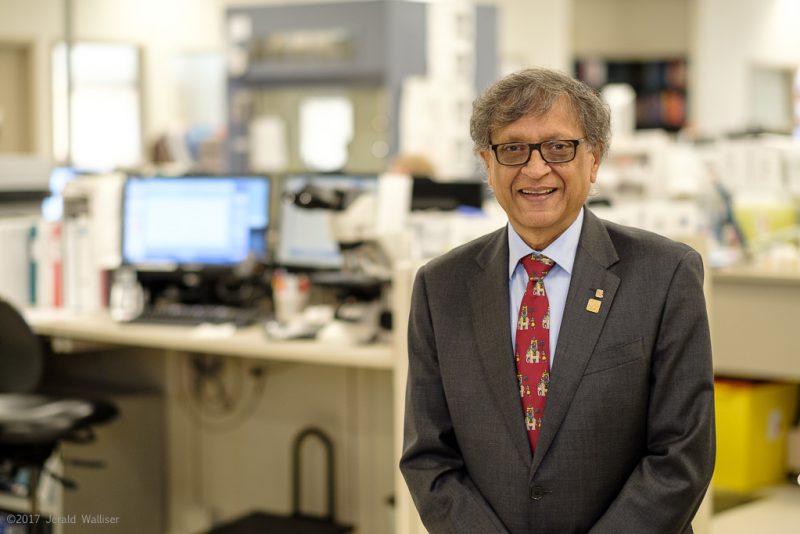
“The study of the brain is the next frontier for future generations,” says Dr. Garg, who has distinguished himself by finding ways to involve the South Asian community in health, prevention of illness, and management of chronic diseases like diabetes and mental health. “We still know so little about trauma, injury, or shock to the brain … that is why we need the South Asian community to help us fund important research, which is not available locally as of yet.”
Dr. Garg is part of a team that also includes neurosurgeons, neurologists, neuroradiologists, and laboratory physicians at Royal Columbian Hospital who are keen to dive deeper into the topic.
The group has partnered with Royal Columbian Hospital Foundation to establish a South Asian Health Fund, with an immediate goal to raise $100,000 for research by the end of this year.
One area the committee is eager to explore is how to help patients with brain injuries, neurodegenerative and inflammatory diseases (ND), and mental health.
“With early identification, we can intervene for better clinical outcomes,” says Dr. C. Preet Chahal, attending neurologist at Royal Columbian Hospital. “The confirmation of such diagnosis allows early detection across a spectrum of disorders, such as Multiple Sclerosis (MS), Alzheimer’s and Parkinson’s diseases.”
Among the concepts attracting interest is that of biomarkers, which is used as an indication that a genetic process in the body has happened or is ongoing. In simple terms, biomarkers can be employed to find out the risk of a patient developing certain medical conditions.
Worldwide, biomarkers have been applied to the screening, diagnosis, treatment, and monitoring of a number of diseases.
While many advances have been made in the development of biomarkers for disorders such as cancer, Dr. Garg says progress in establishing biomarkers for brain disorders and related diseases has been lacking.
“There is a lot of research happening around the world, but we hope that within two years, we can make the use of biomarkers very applicable to all British Columbians,” says Dr. Garg. “We believe that the use of biomarkers will offer better, effective treatments in the future.”
As the only major (Level 1) adult trauma centre in Fraser Health, last year alone Royal Columbian cared for 2,405 patients who required neurological care.
“By focusing on the development of biomarkers for neurodegenerative disease, we can not only identify new ways of diagnosing early but better manage both neurological diseases and mental health disorders,” says Dr. Chahal.
It’s this kind of vision that is behind the group’s passion.
“As a leader in cutting-edge research and technology, it is at your hospital that ideas come to life, collaboration leads to success, and new tools advance patient care,” says Dr. Garg. “It’s a real opportunity for the South Asian community to engage with mainstream society by providing leadership, which will translate into a healthier community for all.”
“There remains a paucity of disease modifying treatments in neurodegenerative diseases, which is why further research into neuro-degenerative diseases is so vitally important,” says Dr. Chahal. “This is a chance for the South Asian community to become stakeholders in the health and wellbeing of all fellow Canadians.”
You can make a huge difference in the lives of those suffering from neurological diseases and mental health disorders by donating to the South Asian Health Fund. Visit www.rchfoundation.com/southasianhealthfund to contribute today.
